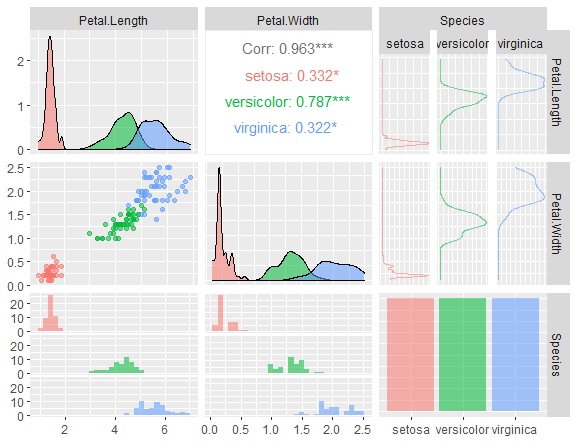How to Get a Job as a Data Engineer?, The study of data engineering is fascinating.
You get to collaborate with numerous teams of data professionals and subject matter experts, as well as a variety of interesting data sets and cutting-edge technology.
How to Get a Job as a Data Engineer?
Data engineering as a whole is a young field. The success of the organization depends on your work as a data engineer because many data professionals, such as data analysts and data scientists, depend on you to complete their tasks.
It is your responsibility to provide them with accurate information that is always available.
The businesses depend on you to base your decisions on factual information and KPIs that were derived from it.
What is the bias variance tradeoff? – Data Science Tutorials
And if you are skilled at it, they will pay you generously! Let’s examine the most in-demand talents, the major influences on potential career paths, and how to prepare for technical interviews.
Overall, it can be challenging to provide truly broad advice, but I’ll list the qualifications that, based on my experience in the industry and what I noticed being listed frequently in job postings, seem to be the most important.
1. Being a T-shaped professional
The ideal course of action is to strive to become a generalist (the horizontal bar in the letter T), meaning that you should have a basic understanding of big data, cloud computing, data warehousing, and SQL, as well as some knowledge of Python, Docker, and ETL creation.
Nevertheless, you ought to be more proficient in at least one particular field (the vertical bar in T).
For instance, you might excel at scripting Spark or Dask data manipulations, or you might possess specialized knowledge needed by the organization you apply to, which distinguishes you from other candidates.
In many cases, having a solid understanding of SQL combined with the fundamentals of Python, Linux, and AWS can land you a decently paid entry-level job.
How to handle Imbalanced Data? – Data Science Tutorials
2. Cloud services for working with data
Numerous industries have been revolutionized by cloud computing. You must be familiar with the most crucial storage, computing, networking, and database services if you want to succeed as a data engineer.
If you don’t already know much about those, I highly suggest learning about Amazon Web Services.
Even if you decide to use Google Cloud Platform or Microsoft Azure, the concepts you learn from AWS can be applied when switching to a different cloud vendor because many services offered by different cloud vendors are comparable, and their concepts are essentially the same (ex. block storage vs. object storage vs. NFS).
If you are new to AWS, clicking on this link will take you right to some fantastic, free courses on the platform.
From my experience, recruiters and engineering managers don’t really care too much about credentials, thus you don’t need to pay for the additional certificate.
How to Get a Job as a Data Engineer?
They are looking for knowledgeable individuals with practical expertise who can use their knowledge to solve business difficulties.
The following AWS services are crucial for a position in data engineering: Being able to work with files on S3 programmatically ( to download and upload a CSV or parquet file).
Best Books About Data Analytics – Data Science Tutorials
Having the ability to launch an EC2 instance, SSH into it, and have a rudimentary understanding of Linux to enable CLI interaction
Knowing how to create an IAM user, connect a policy to pertinent services, and use it to configure programmatic access using the AWS CLI+ are all examples of IAM. fundamentals of IAM jobs
You should be familiar with what a VPC is, what a subnet is, and the fundamentals of how they operate ( your VPC exists in a specific AWS region and subnet in a specific Availability Zone within that region)
RDS: being able to launch or at the very least work with a relational database like Postgres
AWS Lambda (serverless Function as a Service), ECS & EKS (running containers at scale), Amazon Redshift (cloud data warehouse), Athena (serverless query engine to query S3 data lake), and AWS Kinesis or Amazon MSK are also useful (both are used for real-time streaming data).
However, you can start by concentrating on the ones included in the bulleted list. Most of them are explained in the Edx courses.
Additionally, keep in mind to practice: the AWS free tier gives you (limited) access to those fundamental services so you can experiment and learn by doing.
3. Building ETL pipelines
A large part of a data engineer’s job involves combining data from numerous sources, transforming it into an analytically-ready format, and feeding that data into a data lake or data warehouse.
You ought to have some prior ETL development experience.
It doesn’t necessarily mean that you must have worked on a Big Data project for some significant businesses; even your independently motivated projects released on Github or in a blog post might help you stand out from the competition.
Best Books to Learn Statistics for Data Science (datasciencetut.com)
4. Managing, monitoring, and scheduling ETL pipelines
The constant availability, dependability, and right structure of the data are some of the major duties of data engineers.
You must schedule and keep an eye on your data pipelines in order to accomplish this. Knowing one of the widely used workflow management systems, such Apache Airflow or Prefect, may greatly increase your chances of landing an excellent data engineering job.
5. Ability to work with containers: Docker & Kubernetes
If you use Python, you are aware that updating to a new pandas version can cause your code to suddenly stop working.
Working with containerized workloads is one of the most important and in-demand talents in (any) engineering position since it allows you to deploy your code to almost any environment and makes it self-contained and dependency-free. Containerization is important.
Best Books to learn Tensorflow – Data Science Tutorials
6. Knowing basic concepts
You should be familiar with the fundamentals of data warehousing, data lakes, big data, REST APIs, and databases if you want to be a T-shaped professional.
It would be disheartening if you were unable to adequately describe the 3Vs of big data or the characteristics of a data warehouse during your job interview.
Knowing the architectural elements is also important. For instance, I go through data warehouse architectures and important factors to take into account while moving to the cloud in my piece.
7. Ability to work and learn independently
It should go without saying that given how quickly technology is developing, it’s essential that you are a self-directed learner who is eager to keep learning and try out new tools.
It simply means that you should maintain an open mind rather than succumbing to every fad.
8. Coding skills
It’s not necessary to be a “hacker” or to spend your entire day writing code in order to be a programmer. It’s more important to be quick to pick things up and have high abstraction writing skills.
In the field of data engineering, this means that you are able to construct DRY (Don’t Repeat Yourself) code, which means that you are able to build functions or classes in a modular and reusable manner rather than copying and pasting the same code from one script to another.
Clean code will save you and others time because it can be extended, reused, and parametrized.
You don’t need to learn how to make packages if you are just getting started with Python.
Writing effective Python functions and having a rudimentary understanding of data manipulation tools like Pandas may be sufficient at the start.
Best Books on Data Science with Python – Data Science Tutorials
Regardless of the programming language you know, you can get a much better job if you comprehend the fundamental data types for working with data, as well as the concepts of functional programming and modularity.
Many companies also look for data engineers who know Scala, Java, R, or C (or any other language you can think of).
9. Command Line
One of the most important abilities that will increase your efficiency is the ability to work with the Linux operating system and communicate with it using bash commands.
The way that many frameworks and cloud services operate allows us to define our resources and services using a declarative language (like Dockerfile or Kubernetes YAML files), which can then be deployed using a Command Line Interface (CLI).
This approach is frequently referred to as infrastructure as code. For instance, using the AWS CLI, you can quickly and easily provision a whole cluster of resources by sending bash commands to the AWS API. Similar command-line interfaces are available from other cloud service providers (such GCP or Azure).
10. Soft skills
Some people might assume that a data engineer only writes ETL and performs number crunching. But it pays well to have abilities that complement your profile in every job. Consider you have two choices:
How to Get a Job as a Data Engineer?
a strong programmer but a woeful public speaker,
a competent programmer who is also a strong public speaker.
Artificial Intelligence Examples-Quick View – Data Science Tutorials
Who would you choose to employ?
Most businesses would choose the latter. Employers seek out individuals who are well-rounded and also possess crucial soft skills like project management, public speaking, and documentation, or who are excellent at moderating and planning events.
How to Get a Job as a Data Engineer?
The main determinants of your career prospects
The location, industry, necessary abilities, and level of experience all affect data engineering job salaries. The seven most crucial elements that affect pay and potential growth are listed below.
Some of them should come as no surprise, but others might:
Location: Even if you apply for remote work, there’s a good probability that the employer will pay you according to local wage requirements to account for living expenses, etc.
Industry: Businesses in the banking, automobile, IT, or pharmaceutical industries frequently pay significantly higher wages than startups and online retailers.
Although the years themselves don’t truly indicate how much you learned from your past positions, recruiters are fixated on years of experience.
Years of experience don’t equal expertise, and vice versa (at least I think so). Frequently, people excel at sophisticated SQL, Linux, Dask, or Spark.
And if you can demonstrate that you truly understand it, it might be worth greater than 20 years of drag-and-drop ETL knowledge.
In engineering, nothing is more valuable than practical experience. If we can’t use our knowledge in the actual world, no one will gain anything from it.
Work on your own projects and exercise. Don’t assume that simply because you read something, you already know it; if you haven’t put it into practice, it’s just information that you will quickly forget.
Education – In my experience, recruiters don’t give your education the weight it deserves. Of course, recruiters look to see if you have a Bachelor’s, Master’s, or even a Ph.D., but frequently they don’t care too much about what university you attended or what you studied.
The same is true of certifications; many technical managers will place a higher value on your actual experience using particular tools or programming languages than any formal evidence of your proficiency, and they may choose to confirm your knowledge for themselves during the technical interview rather than relying on certificates.
How to Get a Job as a Data Engineer?
Your unique talents, subject-matter expertise, and soft skills (such as your capacity for conflict resolution) are more crucial than you might realize.
Recruiters frequently turn down candidates because they believe they don’t fit with the team’s and organization’s culture.
Best Books to Learn R Programming – Data Science Tutorials
How to Get a Job as a Data Engineer- Interview Preparation
Some instances where a candidate was unable to respond to a question regarding the business they had applied to during a phone interview.
Additionally, because questions like “explain to me about yourself” and “why do you want to transition to a new firm” are so frequent, it is a good idea to prepare ahead of time.
You should also be ready for some (basic) technical questions if you intend to apply.
Many data engineering managers request that you create a star schema based on a particular scenario or ask you to answer some coding questions, such as what SQL window functions, generators, broadcasting, or list comprehensions in Python are, or how to create a Docker image and run a Docker container.













